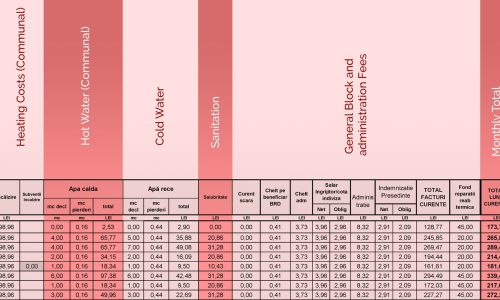Unfortunately, the real-estate industry is just another one of the common targets for scammers to try and get PII (Personal Identifiable Information) and money from unsuspecting victims.
There are a few things that you can do, whether you’re looking for your new home, or already staying in one.
Remember, a scam doesn’t just mean that someone is offering you something and taking your money without providing you what was offered, it could easily be a misleading or falsely represented advertisement, where the conditions don’t match expectations, but you have already signed a contract or paid for the property.
WHEN SEARCHING FOR A PLACE TO STAY:
ALWAYS:
- Ask for the location / address of the property
- Request Photographs
- Request a Phone Number for the contact
- Request length of contract
- Request the fees and deposits
- Verify as early on as possible, the contact information of the person you’re discussing with
- Ensure that contracts have the name and identity details of the individual / company providing the accommodation
- Request to visit the apartment in person, or have someone to visit on your behalf to compare the offer to the real-life conditions
- Request a receipt for any deposits or money paid
- Request the method of payment (Ex. bank transfer etc)
- Ensure your contract includes the terms for payments and returns for deposits (guarantees)
- Ensure that you contract includes both a start date and an end date, with clear cancellation or extension conditions
NEVER:
- Provide PII (Passports, Full Names, Dates of Birth etc) without there being a legal reason to do so, such as for completion of the contract and this should usually be done face-to-face, or through secure channels (Not Social Media or Email)
- Exchange funds without already signing a contract and being absolutely satisfied that the individual is real and that you have been able to verify their identity
- Accept a request to pay a deposit just to “secure” the availability
- Agree to rent a property which you or someone you trust has not already visited in advance
Of course, if you are not in the country and are looking to secure accommodation before you arrive, some of the advice given can be difficult.
We advise trying to visit or stay with someone you trust, and viewing the properties in-person, rather than to immediately accept online offers and find that the property was not what you were expecting, or that maybe the property didn’t even exist.
WHEN ALREADY RENTING A PROPERTY:
ALWAYS:
- Rent with a signed contract
- Request a receipt or written acknowledgement for payments for bills / repairs made during your stay
- Request a receipt or written acknowledgement for rent payments
- Request written consent for any work carried our or changes to your conditions
- Request to see bills for any payments requested by the owner
- Verify payments were received, either via receipt or written confirmation from recipient
- Keep receipts for currency exchanges or currency withdrawals for rent
- Store your sensitive documents such as contracts, passports, and other PII in a secure location, not accessible to anyone except you or those you allow
- Keep a copy of your contract, if possible, scan or take a photo for future reference
- Ensure your contract includes the terms for payments and returns for deposits (guarantees)
- Ensure that you contract includes both a start date and an end date, with clear cancellation or extension conditions
- Report any damage or defects when noticed, whether caused during your tenancy or not
- Adhere to the conditions outlined in the contract, if in doubt, request a clear explanation
- Request an addendum to the contract for any adjustments in payments or contract length
NEVER:
- Rent a property without a signed contract
- Transfer money or give cash without first requesting to have written solicitation
- Agree to pay for repairs or maintenance services, unless the owner states in writing, that they will reimburse the costs, or reduce from next payments
- Accept unsupervised entry into your rented property, unless pre-arranged with precautions
- Allow entry from “maintenance” workers or service engineers without checking with the owner, unless it’s for services you own
- Agree to allow work or services to be performed without owner’s consent
- Agree to pay for services that you have not requested or were not mentioned either before or in the rental contract
- Pay “debt” remaining on unpaid bills from previous tenants more info
- Agree to allow the owner to keep the deposit if you have moved out more info
- Make verbal changes to written conditions, always request the change in writing
- Break the conditions of the contract, without getting written exception from the owner with clear guidelines
There will always be some degree of risk associate with renting a property, however, as long as you follow these guidelines, you should minimise your chances of losing money or becoming a victim of identity theft.



